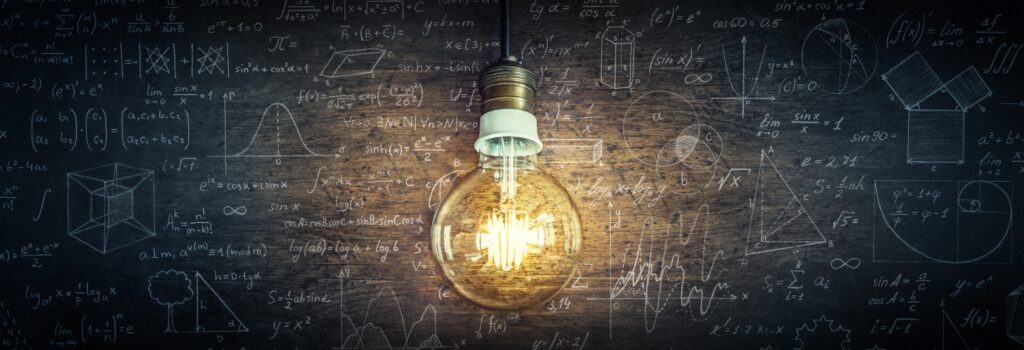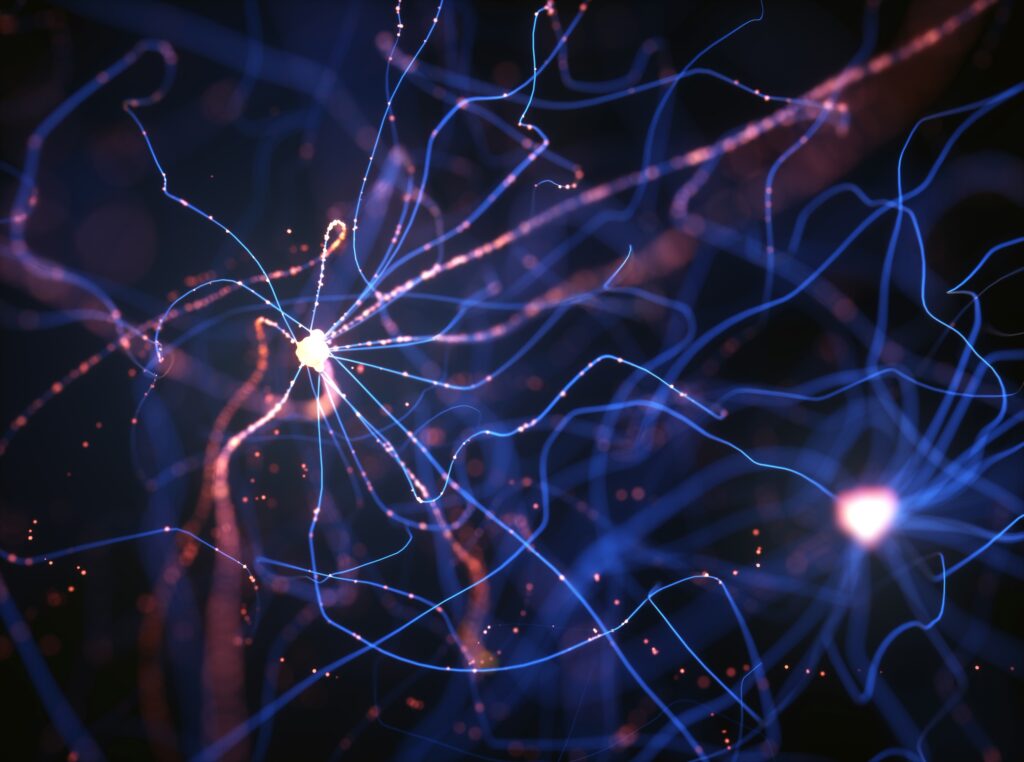Bertrand Russell’s failure to refute Idealism (The Return of Idealism)
Reading | Metaphysics
![]() Prof. Michael Della Rocca, PhD | 2024-05-11
Prof. Michael Della Rocca, PhD | 2024-05-11

While history suggests that the founder of analytical philosophy, Bertrand Russell, won the fight against the idealists led by F.H. Bradley, Yale philosopher Prof. Michael Della Rocca argues that Russell failed to even address Bradley’s central argument. Ignoring Bradley’s timeless message puts in serious jeopardy not only our basic understanding of ethics, but also the ultimate nature of reality itself. This essay is the latest instalment of our series ‘The Return of Idealism,’ in partnership with the Institute of Art and Ideas (IAI). It was first published by the IAI on 29 April 2024.
In 1910, an event took place in the pages of the journal Mind that would turn out to be pivotal for the entire subsequent course of philosophy. This was a debate spread over two consecutive issues between the British philosophers F.H. Bradley and Bertrand Russell about Bradley’s version of monism and idealism. These articles had rather boring titles—Bradley’s “On Appearance, Error, and Contradiction” and Russell’s “Some Explanations in Reply to Mr. Bradley”—but the exchange proved revelatory.
This showdown was over Bradley’s central argument for the view that relations are not real. In other words, for Bradley, such ordinary claims as “I am five meters from the door” or “Bradley was born before Russell” are not strictly true. Of course, almost all of us believe that claims of this kind are true and that there really are relations between distinct things. But not Bradley.
This is not surprising for Bradley, who—like a small proportion of philosophers previously and an even smaller proportion of philosophers subsequently—was no respecter of commonsense. Bradley devoted the whole of his 1893 book, Appearance and Reality, to arguing for and drawing out the implications of this non-commonsensical denial of relations.
And the implications are as vast as they are troubling. For if there are no relations, then there are no relations of distinction and there cannot be a multiplicity of distinct things. And if there is no multiplicity, then there is at most one thing. This is called monism. Further, if there are no relations, then there are no relations of distinction between thought and the object of thought. Such a view, which effaces the distinction between thought and object, is a version of what has been called idealism. Further—and perhaps most alarmingly—if relations of distinction are eliminated, then there is no distinction between what is the case and what ought to be the case. That is, there is no distinction between normative facts and non-normative facts, and without such a distinction it is difficult to see how morality itself is possible.
Before 1910, Bradley—despite, or perhaps because of, the extreme nature of his views—had achieved an exalted status as one of the leading philosophers in the English-speaking world. Appearance and Reality and his previous writings had attracted many followers, including one Bertrand Russell who was a card-carrying Bradleyan in his youth—until he wasn’t. And it is, to a large degree, Russell’s rupture with Bradley that set the stage for the dominance of so-called analytical philosophy, which has been ascendant ever since then in the English-speaking world and beyond. (For a wonderful account of the setting and significance of Russell’s debate with Bradley, see Candlish’s The Russell/Bradley Dispute.) Thus, at stake in this debate is not only monism, idealism, and ethics, but also the whole subsequent history of philosophy and the analytic tradition in philosophy itself.
From this distance in time it is hard to discern all the considerations at play in this showdown. But I would like to extract one important point of agreement that emerged between Bradley and Russell, a point of agreement that provides us with a valuable way of understanding how Bradley argues, or could argue, for his extreme position and how Russell (and his many followers, i.e. almost all of analytical philosophy after Russell) at least implicitly sees Bradley. Thus, at a crucial moment in the exchange, Russell says that Bradley’s argument for the non-reality of relations turns upon “some law of sufficient reason”—the venerable principle of sufficient reason (the PSR)—according to which each thing or fact has an explanation.
It’s clear that Russell is right: Bradley is, in fact, relying on the PSR. Moreover, I believe that Russell and Bradley are right: the PSR does lead to the denial of the reality of relations, or at least a limited version of the PSR does so.
Let me briefly offer a PSR-infused argument for the rejection of relations. This is an argument in the spirit of Bradley, though not all of the particular steps I make are Bradley’s. The fullest presentation of my version of a Bradleyan argument can be found in chapter 3 of my book The Parmenidean Ascent.
Thus, consider things a and b which are related. Let’s say that R is a relation between a and b. For example, a is me, b is the door, and R is the relation of my being five meters from the door. It is important to note that this relation cannot be free-floating. It must be explained by, or grounded in, some thing or things. That is, it wouldn’t make sense to talk about “being five meters from” without mentioning myself and the door. We can only talk about relations intelligibly if we include their relata (the things that stand in each relation). Take away the relata and you take away the relation. Thus, R depends on, or is grounded in, (at least) a and b.
Here’s the first key claim in my Bradleyan argument:
1) R is grounded in a and b.
Thus, the relation, R, stands in a grounding relation to a, and also in a grounding relation to b.Let’s focus on the grounding relation between a and R, and let’s call this grounding relation R’ (R prime).
The second key claim is that:
2) R is grounded not only in a, but R is also grounded in R’, the relation of grounding between R and a.
To reach this second claim, note that not only is it the case that R grounded in a, but it is also the case that it is essential to R that it be grounded in a. It is part of the nature of R to be grounded in a. That is, it is part of the nature of R to be grounded in—to stand in grounding relation R’—to a. Because it is essential to R to stand in R’ to a, R depends in part—i.e. R is partially grounded in—R’.
So what follows from (1) and (2)? Because of (1), R is grounded in at least one of its relata, say, a. Because of (2), R is grounded also in R’, the relation of partial grounding that R stands in to a. But then, in order to fully answer the question, “What explains R?”, we must—since R is itself grounded in R’—first ask what grounds R’?
Well, R’ is a relation between a and R. So, given (1), R’ is grounded in the relata, a and R. But, given (2), R’ is also grounded in another relation of grounding, R’’, between a and R’. Thus, before we can explain R, we must first explain what R’ is grounded in, and so we appeal to R’’. But since R depends on R’, which, in turn, depends on R’’, before we can explain R, we must first explain what R’’ is grounded in (here I am relying on what is known as the transitivity of grounding). And we can see that we’re off on an infinite regress. The regress in this case is vicious since—unlike a tame infinite regress, such as that of the number series (1, 2, 3…)—it involves a claim of explanatory priority. That is, we need the additional relation R’ to explain R, and a further relation R’’ to explain R’, and so on ad infinitum. Since we need to keep generating new relations to explain the previous ones in the chain, the entire chain is totally foundationless. And so it turns out that we haven’t been able to explain the original relation R, the thing we first sought out to explain.
It turns out, then, that R—and relations in general—cannot be properly grounded or fully grounded. Relations cannot be explained, even though, because relations cannot be free-floating, the nature of a relation seems to demand an explanation. In this way, relations are incoherent by their very nature, and thus there are no relations.
Bradley’s insight, and Russell’s and mine, is that some version of the PSR leads to the denial of the reality of relations—indeed, it leads to the incoherence of the very notion of a relation. Actually, a full-blown PSR—to the effect that each fact or each thing that exists has an explanation—is not needed. All that is needed is the claim that relations, in particular, require explanations. And this claim seems hard to deny—otherwise one would be in the situation of espousing the dreaded free-floating relations—relations that exist or obtain without depending on anything, not even their relata.
So what’s the upshot? No relations, no distinctions, but a monism of a particularly radical form and also a version of idealism. And, as I warned at the outset, another upshot is the undermining of normativity itself and of ethics, as typically understood. In the dispute between Bradley and Russell, not only is the existence of relations at stake, not only is the existence of a world distinct from and independent of thought at stake, but normativity as such, mattering as such being at stake itself is at stake. No debate could be more significant than this debate over the reality of relations.
Because so much is at stake here, you can see why philosophers, such as Russell and his many followers down to the present day, are so bound and determined to dismiss Bradley’s arguments and arguments of the kind that I have advanced here in my own way.
Precisely because a powerful argument for the momentous Bradleyan conclusion has been offered, a philosopher like Russell had better have a good reason for rejecting Bradley’s argument—and mine. Since the Bradleyan arguments turn on some form of the PSR, you would expect, then, that Russell has a good argument against the PSR and against that limited form of the PSR that Bradley’s argument and my argument rely on.
So what is Russell’s response to Bradley? At the key moment, Russell identifies something like the PSR as the heart of Bradley’s argument, and his response to this Bradleyan move is quite interesting. Russell says simply, “it appears to me … that the search for a ‘sufficient reason’ is mistaken.” That’s it; that’s all he says in response to Bradley’s argument. Well, that’s nice, but it’s no argument against Bradley. It’s just a simple denial of the main claim that drives Bradley’s argument.
Russell is suffering here from the dire philosophical malady known as “loss of argument.” And the thing is: philosophers have more or less blindly followed Russell in thinking that he has defeated Bradley or a Bradleyan argument, even though Russell has done no such thing. He has simply denied Bradley’s conclusion and simply rejected the very tool—the PSR—that Bradley uses to reach his conclusion. Thus, the Bradleyan argument and conclusion are still alive and well and—because of its ethical implications—never more threatening.
Russell’s complacency in the face of Bradley’s argument—and philosophy’s complacency more broadly—is misguided. Instead, Russell and we should be afraid. We should be very afraid indeed.

Essentia Foundation communicates, in an accessible but rigorous manner, the latest results in science and philosophy that point to the mental nature of reality. We are committed to strict, academic-level curation of the material we publish.
Recently published
Reading
Essays
Seeing
Videos
Let us build the future of our culture together
Essentia Foundation is a registered non-profit committed to making its content as accessible as possible. Therefore, we depend on contributions from people like you to continue to do our work. There are many ways to contribute.















